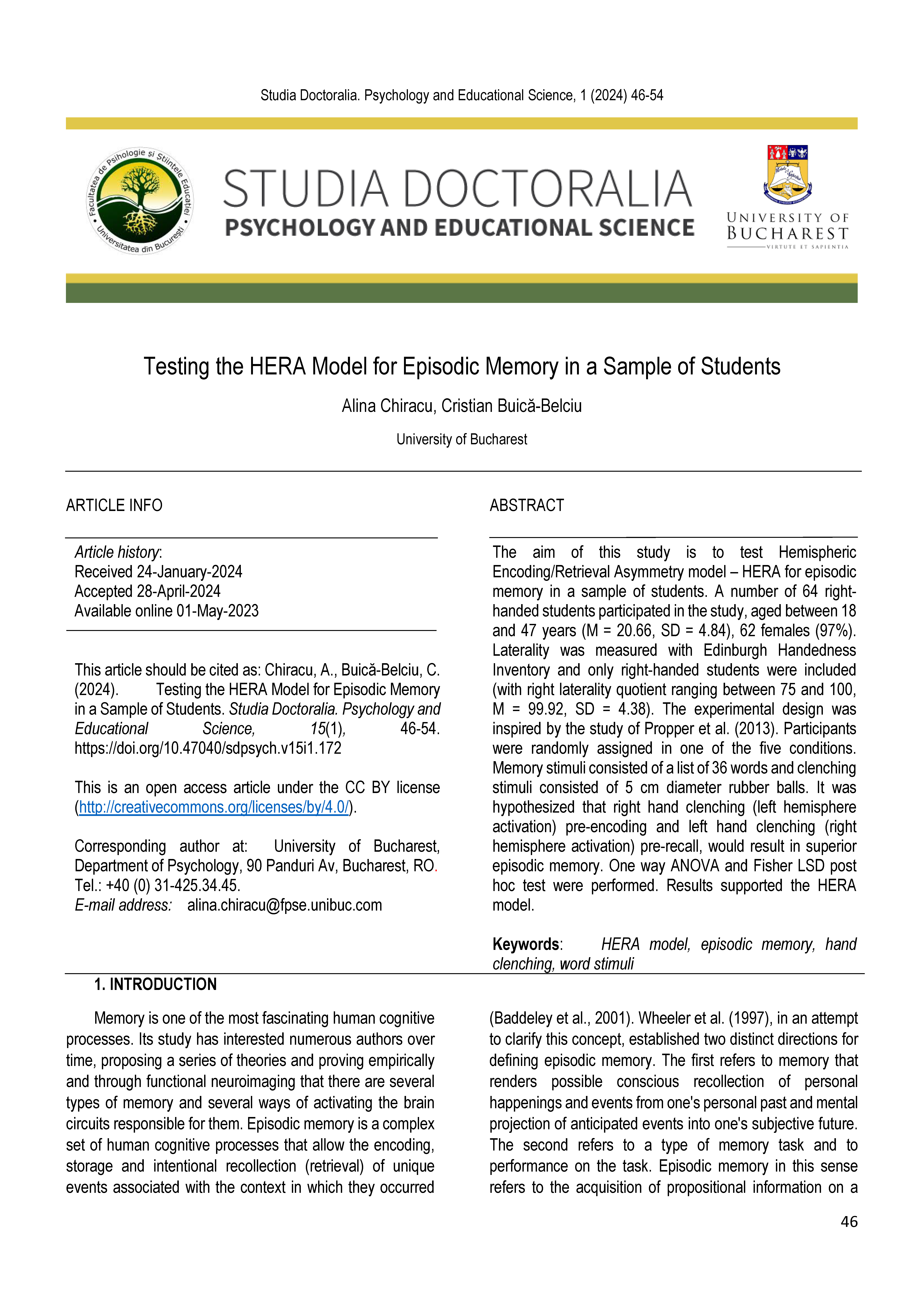Testing the HERA Model for Episodic Memory in a Sample of Students
DOI:
https://doi.org/10.47040/sdpsych.v15i1.172Keywords:
HERA model, episodic memory, hand clenching, word stimuliAbstract
The aim of this study is to test Hemispheric Encoding/Retrieval Asymmetry model – HERA for episodic memory in a sample of students. A number of 64 right-handed students participated in the study, aged between 18 and 47 years (M = 20.66, SD = 4.84), 62 females (97%). Laterality was measured with Edinburgh Handedness Inventory and only right-handed students were included (with right laterality quotient ranging between 75 and 100, M = 99.92, SD = 4.38). The experimental design was inspired by the study of Propper et al. (2013). Participants were randomly assigned in one of the five conditions. Memory stimuli consisted of a list of 36 words and clenching stimuli consisted of 5 cm diameter rubber balls. It was hypothesized that right hand clenching (left hemisphere activation) pre-encoding and left hand clenching (right hemisphere activation) pre-recall, would result in superior episodic memory. One way ANOVA and Fisher LSD post hoc test were performed. Results supported the HERA model.





